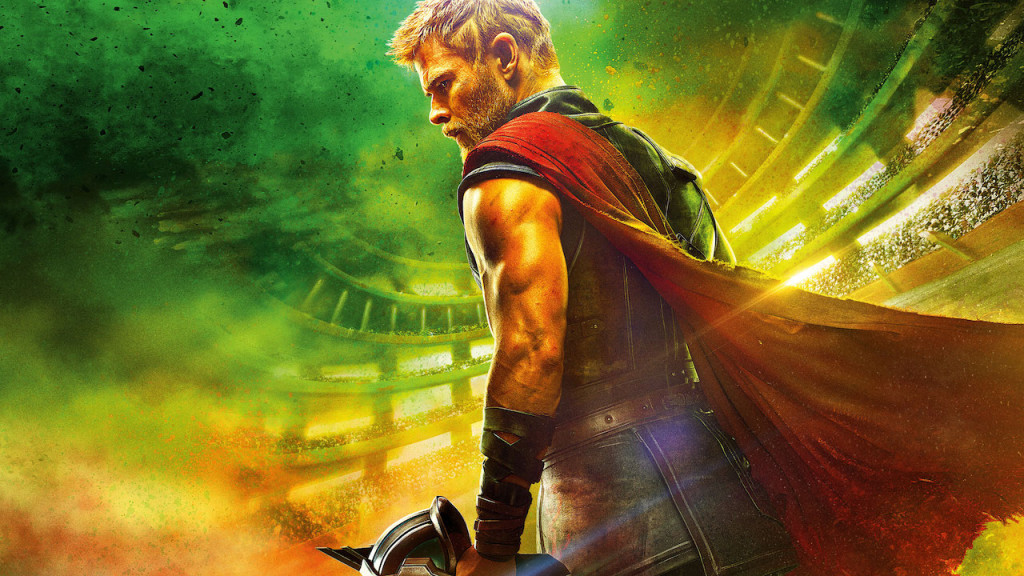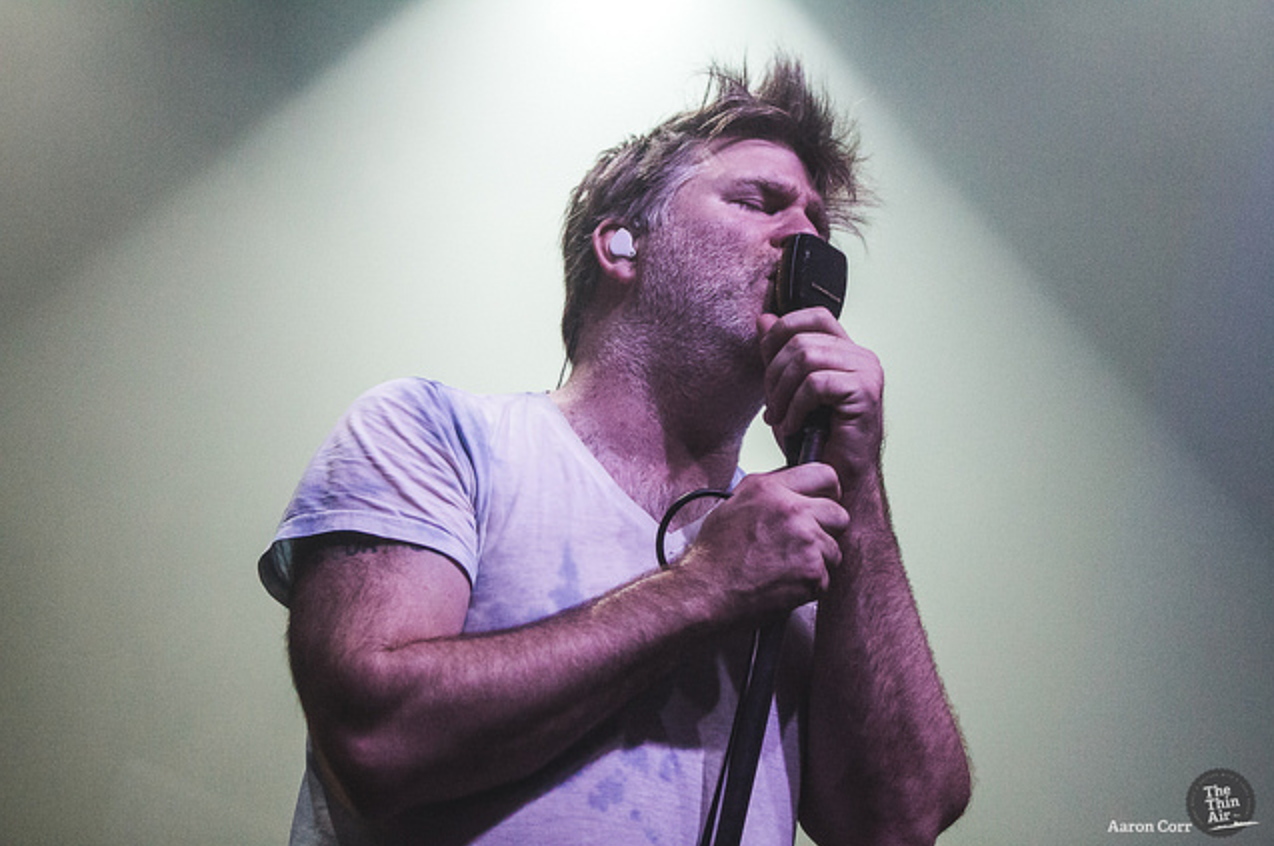
In July I wrote that Spider-Man: Homecoming was the funniest Marvel movie so far, a distinction that has lasted all of, oh, three months. Actually, Thor: Ragnorok is the funniest one yet. The Marvel factory, whatever its faults, is pumping out plain old good times on overtime hours.
Ragnorok, the third and presumably final solo outing for Chris Hemsworth’s Men’s Health Goldilocks, retains some of the studio’s familiar issues, but makes up for them by being — for long stretches — honest to goodness hilarious. The Lord — sorry, God — of thunder is front of house, but Kiwi film-maker Taiki Waititi is the man of the hour, the latest in Marvel’s pinching of talented directors (Ryan Coogler’s Black Panther’s on the horizon), directing and imprinting his recognisable comic rhythm (and showing up in a very Waititi-esque voiceover).
On Earth, Teams Tony and Steve are butting heads, but that’s a few dozen light years away. Thor’s been on a cosmic whistle tour, trying to figure out why he’s dreaming of Asgard in flames. When we left things in the gilded city, a shape-shifting Loki (Tom Hiddleston) had taken Odin’s place on the throne, and when Thor returns he finds his “father” lounging around, commissioning hammy plays about how much of a hero he was.
The lingering threat of “Ragnorok” — the Asgardian apocalypse — reaches critical levels with the arrival of Hela, the goddess of death (Cate Blanchett), a purring adversary who shoots knives out her hands and lays waste to Asgard, a mythical realm which seems to have the scope and security protocols of a prosperous medieval village.
After a wrong turn on the beam-me-home slipstream (rendered in lovely rainbow lines), and the destruction of his beloved hammer, Thor is stranded on a garbage planet, and forced into gladiatorial combat against the pet champion of the Grandmaster (a wry Jeff Goldblum), a big, emerald Earth exile he knows from work, who now speaks in whole sentences and enjoys a dip in a hot tub. Together with Tessa Thompson’s boozing Valkyrie, Hulk, Thor and a reluctant Loki hatch an escape plan to make it home and stop Hela.
Ragnorok is strongest when it drops and everything and serves straight comedy. It was written by Marvel regulars Eric Pearson, Craig Kyle and Christopher Yost (who wrote Dark World), but the tone is so close to Waititi’s other work that it’s hard to believe he didn’t pitch in, or was kept mind during the screenwriting process. Like Hunt for the Wilderpeople and What We Do In The Shadows, Ragnorok excels in its characters’ refusal to take much of what is happening seriously. There is some questionable overeach (a bit about Thor’s hammer ‘pulling’ him), but for the most part it’s a riot. The Thor movies have been best when they push their hero’s silliness, helped by Hemsworth and his growing comic cache. No-one does superhero shit-shooting quite like Marvel, and Ragnorok pushes this to new heights, shaping wisps of silliness out of simple exchanges.
The two stories play out a hundred galaxies apart, and it sure feels like it sometimes. Every time the film cuts back to Asgard’s huddled beige masses, terrorised by Hela and her conflicted lackey Skurge (Karl Urban), it’s a letdown. Who knew an antler-topped Blanchett playing the goddess of death would feel like a clock-ticking villain exercise, but here we are. She’s returning to claim the Asgardian crown in the continuing musical thrones, but Valkyrie’s dismissal of the hoo-hah as royal family drams feels on point. It’s hard to care about the fate of such an unexciting place (all the good bits of the Thor movies take place outside Asgard), especially in comparison with the gladiator planet, decked out in circuit-board colours, a mix of Jack Kirby’s intricate illustrations and the woozy, boozy patterns of a ’60s home furnishing catalogue.
The bifurcated structure, where the characters are trying to escape the interesting story in order to make it to the not interested one, throws up a problem that Waititi, judging from his filmography, isn’t equipped to resolve. Both Wilderpeople and Shadows work better as a collection of little set-pieces and exchanges than whole movies; even though both have believable emotional arcs, they drag a little in the back-half, and Ragnorak does the same, as the crew rally to save Asgard (their solution is, to be fair, enjoyably novel). Along the way Waititi’s eye for composition throws up some gorgeous framing, even when there are faceless hordes to fight.
But the momentum problem takes a toll, regular interruptions stalling the ‘Planet Hulk’ caper, and the criss-crossing provides the clearest meta-example of Marvel’s dual auteur/house styles. Still, when Ragnorok is good, it’s very good, disrupting superhero fatigue with pockets of deadpan delight. A funny film, in more ways than one. Conor Smyth
Thor: Ragnorok is out now on wide release.





